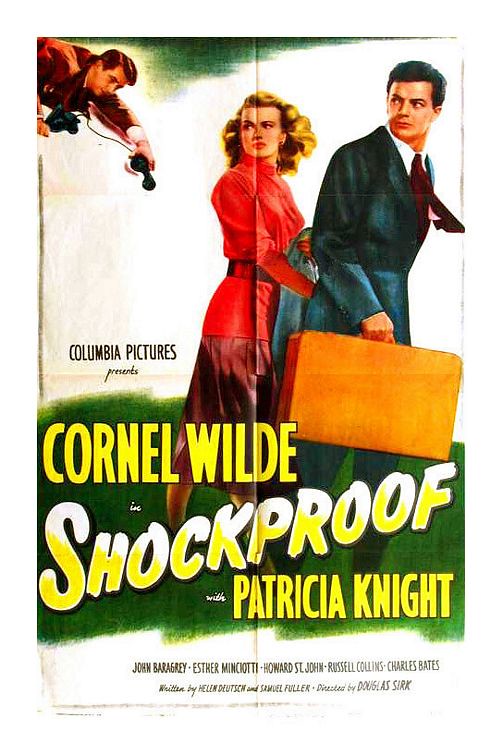
Seems like every other film I put on at random speaks to my shelved "crime road movie" idea about the well-meaning couple who commit a crime and flee from Washington state to Mexico and lose their soul along the way. Shockproof is definitely a film in this category. Or at least, it wants to be. Somewhere in there is the story of a man who falls for the wrong girl and does crazy things for her, sacrificing incrementally more and more of his principles and reputation (in other words, his identity) to be with her; and somewhere in there is the story of a girl pushed back and forth by two love-mad men, one a smalltime bad-guy and the other a smalltime good-guy, only each shove pushes her further away from any reasonable moral center. Somewhere in there is a story that asks is love bigger than the troubles of real life, or are the troubles of real life bigger than love? And the answers are almost interesting.
It's hard to say if what holds it back is the romance backbone of the story, the Douglas Sirk melodramatic tone, or the populist expectations of the era. A little research suggests that the original ending of Samuel Fuller's screenplay had Griff "violently rebelling against the system that tried to keep him and Jenny apart." Instead, here, we have Jenny realize how far through the muck she's dragged this poor guy and turn herself in, only to be rewarded by a weird and abrupt one-eighty by her antagonistic former love interest, when he decides to drop all charges, apparently rendering the apathetic cops unable to convict them of anything. (Note: Jenny didn't "drag" Griff through any muck, actually; in fact he dragged her practically kicking and screaming into virtually every mess they find themselves in. Griff Marat has got to be the most cracked, poor-judgment parole officer in the history of criminal law, but I guess love'll make you do crazy things, right?)
The story undermines itself completely before the end, and to make matters worse it seems to only have two modes: heavy-handed symbolism and overwrought, too-thematically-spot-on dialogue. My instinct is that the former is Sirk's touch and the latter Fuller's, and neither helps the story work. Basically, this isn't the very best movie ever made, but it hits on some pretty interesting themes and has, until the (anti-)climax at least, a pretty decent structure. Something just got overcooked along the way, and the result is a somewhat toothless, stale romantic fantasy.
But it's really so close to something... it really is. Oh well.

No comments:
Post a Comment